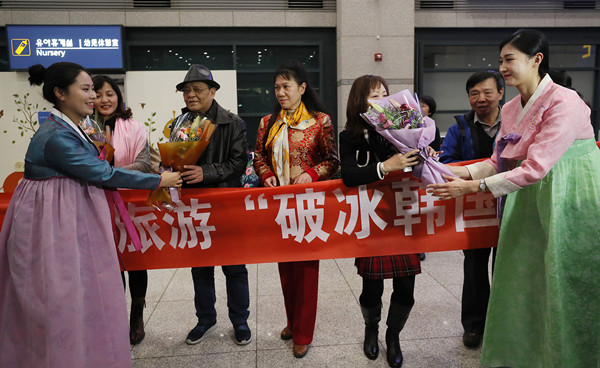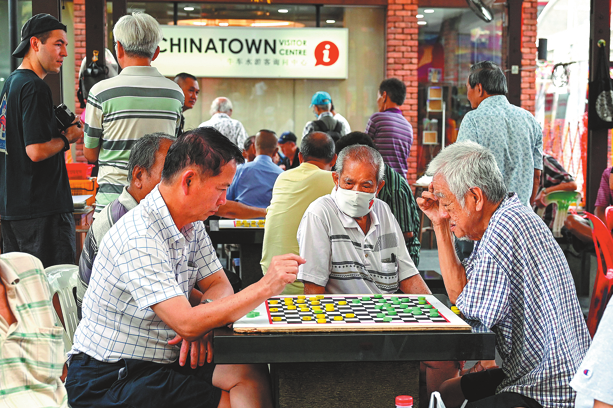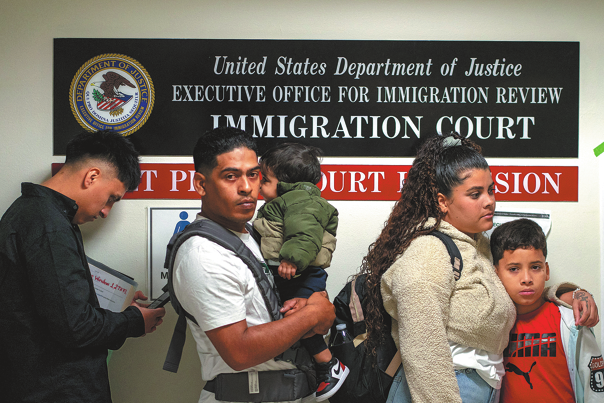Chinese tourists go to South Korea
By ZHANG YI/ZHAO XINYING | China Daily | Updated: 2017-12-05 08:14
 |
Staff workers at South Korea's Incheon International Airport welcome Chinese tourists on Saturday. [Photo/CHINA DAILY] |
A Chinese tourist group began a visit to South Korea on Saturday, eight months after package tours were halted because of a diplomatic dispute sparked by the US military's deployment of the Terminal High Altitude Area Defense system in the country.
The tourist group of 32 people from Beijing will spend five days in Seoul, according to Sun Lichan, director of the marketing department of Haitao Travel, the tourism company that organized the trip.
Any industry related to Lotte Group will be avoided in the company's new travel schedules, Sun said. The Lotte Duty Free Shop, a former popular shopping spot for Chinese tourists, will be replaced by the Shilla Duty Free Shop.
Lotte Group, a retail giant in South Korea, accepted a plot of land in February in exchange for its Skyhill Golf Course in Seongju, where the US antimissile system will be deployed, a move that China strongly opposes.
South Korea's trade and tourism industries saw downturns because of the THAAD issue. In March, Chinese travel agencies stopped selling package tours to South Korea after the THAAD deployment.
"As bilateral relations between the two sides have eased slowly recently, we began to reorganize group tours by contacting airline companies and travel agencies we can cooperate with in South Korea," Sun said.
The company got a group visa to South Korea on Thursday-the first group visa to the country since March, Sun said.
The group took an Asiana Airlines flight from Beijing Capital International Airport to South Korea's Incheon International Airport on Saturday, she said.
"Tourism to South Korea will recover gradually, but it's still a long way from the situation of a year ago," Sun said.
Xu Xiaolei, chief brand officer for China Youth Travel Service, said: "Customer consultations about group tours or travel visas to South Korea, either in person at our offices or by phone or online, have increased recently, but we have little data about traveling to South Korea."
























